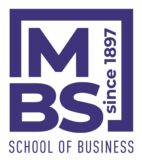The applications for the 2021 intake are now open

We are pleased to inform you that applications for the 2021 intake are now open!
Looking for a top French Business School?
Experience the world of Montpellier Business School, learn more about our programmes and apply online.
Bachelor of International Business Administration
> 1 to 3 year course
> 4 possible tracks
> 100% in English or in French
A programme initiating you to Business and Management, combining professional and academic experiences (in France or abroad).
Learn more about the programme.
Programme Grande Ecole
> 2 to 3 year course
> 100% in English or in French
> 4 to 6 month internship
A programme recognised for its academic excellence, that prepares you for a wide range of career.
Learn more about the programme.
Masters of Science
> 18 month training
> 100%in English
> 5 MSc, 12 specialisations
A programme providing you the skills to become a specialist in a particular field, and opening up the doors to a wide range of international careers.
The participants of the Executive MBA become a consulting agency and deliver their strategic recommendations to SMEs in the region: immersion in the Capstone project
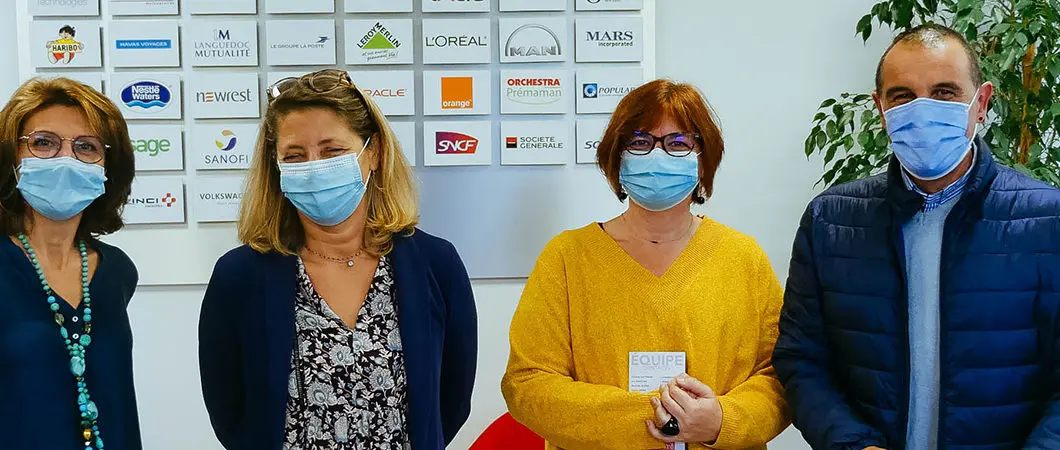
Mobilising the expertise of the EMBA participants to address the concrete problems of local organizations
Every year, the Capstone project recruits businesses to challenge the participants of the Executive MBA Program with concrete issues that appeal to all areas of the training (strategy, marketing, innovation, finance, etc.).
This year, Cécile, Isabelle, Catherine and Myriam have combined their skills to become the auditors of “Le GRAPh“, a popular education association dedicated to photography in Carcassonne, which is becoming a Contemporary Art Center of National Interest that operates for its territory. “We asked MBS to support us in this evolution and understand how to adapt the management of our organization to these new challenges, without disavowing its structure and its founding values,” explains Eric Sinatora, director of Le GRAPh.
Steering, leading, implementing and communicating
After conducting a strategic analysis of the market and the organization’s business model, the participants, accompanied by a professor coach, deliver a series of strategic recommendations to the managers.
“The role of the coach is to lead all the groups to challenge their ability to “report” and offer a real consulting service: understanding the sector and the company’s problems, adopting a strategic vision, drawing up a diagnosis and coming up with an action plan. The aim is not only to deliver strategic recommendations but also to monitor organizations by pinpointing concrete areas for implementation,” explains Dr. Audrey Missonier, Research Professor and one of the Capstone Project coaches.
“Among the challenges, we ask participants to evaluate the social impact of their strategic recommendations, which is crucial to get organizations to integrate social and/or environmental dimensions into their strategy,” adds Dr. Walid Nakara, Capstone Project Leader and holder of the Social Entrepreneurship & Inclusion Chair.
A challenge that seeks also to develop the participants’ soft skills
The Capstone project with the GRAPh offered the opportunity to four participants of the MBS EMBA to mobilize their expertise to accompany the association in a historic shift in its structure. “The problem integrated the whole organization: how to rethink the association in organizational, financial and strategic terms in order to allow it to develop its activities and to position itself, in the medium term, as a Center of Contemporary Art of National Interest?” explains Myriam Ledoux.
Facing an associative public composed notably of volunteers, the group of four auditors adopted a different stance from the classical corporate consultant. “Given all the people we interviewed to build our recommendations, we could not have a classic entrepreneurial approach. The project made us work on our emotional posture and empathy to understand the concerns that such a change in structure can generate among its members. The objective was therefore not to talk about profitability or classic management tools, but rather to build a plan that would guarantee a financial balance and sustainability in this mission of general interest,” says Cécile Lachaise, an EMBA participant.
Are you interested in the Capstone project and the Executive MBA program? Please contact us: 04 67 10 26 08 or 04 67 10 60 08, or by email: emba@montpellier-bs.com.
Incubated at MBS, Hugues developed a Click and Collect system to help restaurateurs during curfew
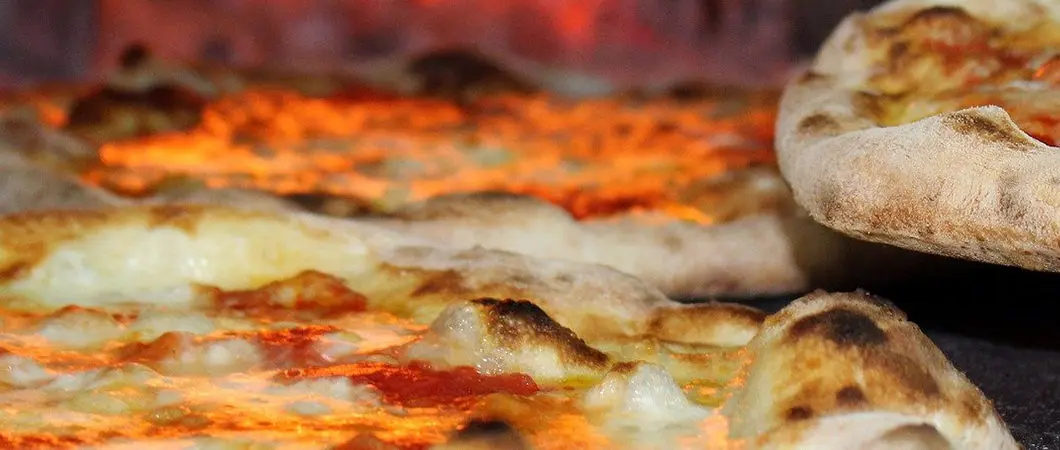
 Hugues will officially graduate from the Grande Ecole Program in a few weeks, but his start-up Foodr is already part of nearly a hundred projects that the MBS incubator supports each year. With his friend and partner Florian, an IT developer, they are designing a new takeaway sales channel to help the region’s restaurant owners during this health crisis.
Hugues will officially graduate from the Grande Ecole Program in a few weeks, but his start-up Foodr is already part of nearly a hundred projects that the MBS incubator supports each year. With his friend and partner Florian, an IT developer, they are designing a new takeaway sales channel to help the region’s restaurant owners during this health crisis.
From an academic project to a Montpellier-based start-up company
During the summer of 2019, Hugues and Florian set up together the strategic positioning of Foodr: “We started from an observation: the take-away sales process in the restaurant business is tedious, long and not automated, unlike food delivery which is already well mastered. But these delivery systems between individuals require large volumes to operate and often neglect the restaurant owners in the countryside. »
It was finally at the beginning of the school year, when he joined the audit and finance major then the start-up specialisation, that Hugues decided to make the concept more concrete. “In all of our exercises, our challenge is to choose a company and apply the concepts we are taught. From the beginning of my last year, I took the opportunity to choose this start-up idea in take-away sales and to benefit from all the feedback from MBS Teacher-Researchers and speakers. In particular, I was able to meet a graduate, an entrepreneur and an expert in the food service sector, and I was able to build a solid business model to join the MBS incubator,” says Hugues.
Sharing skills with students from other fields of study
Before joining the Grande Ecole Program, Hugues joined the Bachelor Program during which he had his first entrepreneurial experiences. “During a pitching contest, we had imagined a sports betting platform with virtual currency to allow sports fans under 18 years old to play and win jerseys. But without an IT developer in the team, the project remained at the idea stage. At that point, I understood the importance of the diversity and synergy of skills within a team,” he explains.
As part of Foodr, Hugues teams up with Florian, a student at Epitech, a leading school of computer expertise in Montpellier. “When you start the process of creating a company, having cross-disciplinary skills allows you to limit costs. Florian was able to develop the application, while I was able to use my commercial expertise to create the first management tools for the company and to expand our catalogue of restaurants. These skills meant that we did not need to call on external service providers and today we are able to take on two interns, including a Product Owner, an Indian MBS graduate who brings all his marketing expertise and international vision to the table,” says Hugues.
Foodr, a marketplace serving restaurants severely affected by the health crisis
As a result of the lock-down and social distancing regulations related to the health crisis, the foodservice sector is experiencing a tough economic situation. “While our project was originally designed to help isolated restaurant owners in the countryside, the curfew in Montpellier is changing the situation and Foodr offers a new alternative for struggling restaurant owners in the city. With a much lighter commissioning system than traditional delivery offers, we offer a marketplace via a mobile application, in which the user can consult nearby restaurateurs, order, pay and then collect his order at the indicated time. With this take-away system, we spare the restaurateur fees from large delivery platforms, we limit human contact in this Covid period, and we offer a structure that makes it easier to take orders,” explains Hugues.
The next step for the Montpellier-based click and collect start-up is now to expand its restaurant catalogue. You can click here to contact them.
You are a student or a graduate and you would like to be supported in your business creation process? Contact the incubator at the following address: ec@montpellier-bs.com.
MBS creates the Social & Sustainable Finance Chair to build an inclusive and responsible economy.
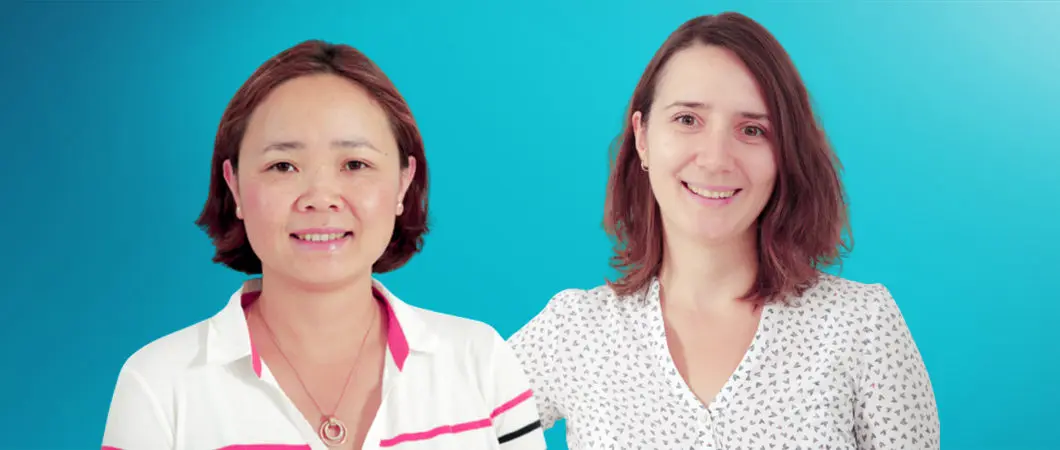
MBS aims to actively participate in building an open, responsible and sustainable economy and society, and thus train precursors to sustainable business transformation. In order to provide students with new educational resources and to guide companies towards sustainable financial management, the Chair of Social & Sustainable Finance was created by the Research Professors Dr. Anastasia Cozarenco and Dr. Thi Hong Van Hoang.
The Chair of Microfinance in Developed Countries evolves
Created in 2018 by Dr. Anastasia Cozarenco and committed alongside the Yunus Centre for Social Business and Financial Inclusion of MBS, the Chair of Microfinance in Developed Countries was a concrete expression of MBS’s commitment to Social Business. “Microcredit has evolved and is now a lever for inclusion so that individuals excluded from the traditional bank can finance a personal project and find a job. “explains Dr. Anastasia Cozarenco.
Supported by the Caisse d’Epargne Languedoc Roussillon (CELR), the Social & Sustainable Finance Chair and its incumbents Dr. Anastasia Cozarenco and Dr. Thi Hong Van Hoang are expanding the scope of action of the first Chair and are also conducting research on social banking, Environmental, Social and Governance (ESG) Indicators and Socially Responsible Investment (SRI).
Social and sustainable finance as a response to financial crises
Aligned with Montpellier Business School’s 2025 strategic plan, the Chair’s objective is to continue developing new initial and continuing education programs and to reinforce the Master of Science in Responsible Finance.
“The Chair is a real springboard for the creation of new educational content and prepares students for the new requirements of the financial markets. Several studies have proven that sustainable investment funds committed to CSR have been less negatively impacted by the crises, particularly the Covid-19 crisis. These responsible finance skills are now sought after by companies. “explains Dr. Thi Hong Van Hoang.
“Finance is no longer a discipline guided solely by financial performance and profitability. Our mission is to democratize the practice of this social and sustainable finance because it is motivated by environmental and social issues and can bring concrete solutions to the 17 United Nations Sustainable Development Goals. “concludes Dr. Anastasia Cozarenco.
Contact
For more information, you can consult the page dedicated to the Chair here.
Dr. Anastasia Cozarenco – a.cozarenco@montpellier-bs.com
Dr Thi Hong Van Hoang – thv.hoang@montpellier-bs.com
MBS students learn leadership with The Lord of the Rings

Can we teach leadership to students?
MBS trains future decision-makers, aware of the social and environmental impacts of their decisions, to engage in the responsible and sustainable transformation of the world. In order to achieve this ambition, the final year work-study students of the MBS Grande Ecole Program take part in an atypical pedagogical module to develop their leadership, i.e. their ability to guide and mobilize a group of individuals towards the achievement of a specific goal in a sustainable manner.
What is the particularity of this elective? It immerses learners in the world of The Lord of the Rings by J. R. R. Tolkien in order to identify the constituent characteristics of leadership.
“In a work-study program, as in an internship, it is rare that a student has had the opportunity to manage a team so early in his or her career. Corporate theory and pedagogical cases are not always enough to capture the relationships and emotions that influence management and decision-making. It is therefore useful to look to art, novels and films to reproduce emotions and thus more easily assimilate complex leadership theories. “says Dr. Philippe Villemus, author of the book Le leadership selon la trilogie de l’anneau.
Bringing Middle-Earth closer to the major themes of business, management and sustainable development
Immersed in Tolkien’s universe, the alternates initiate a three-day quest in Middle-earth to identify the key characteristics of leaders in dialogues and speeches. “Using a reverse class methodology, students analyze the project, vision, motivation, autonomy, performance, team spirit, conflict management, stress and resilience of the protagonists and draw up a typology of groups and leaders. “explains Dr. Philippe Villemus.
“The objective for them is to recognize the similarities between fiction and reality, and to identify analogies with the help of managerial theories. For example, the students quickly assimilate the sorcerer Saruman, who leads his teams from the top of his tower, to a CEO and negative leader who would like to keep a distance of information from his teams. »
Immersion in this complete work allows students to develop a critical sense of the consequences of environmental policy and management. “From the anarchy of the County to the industrial dictatorship of the Orcs, all regimes are represented, and the environmental management of Middle-earth creates increasingly arid and devastated landscapes in regions where resource exploitation by Orcs is motivated only by performance and not sustainability. “says the professor.
The power of inclusion
Another common point between Tolkien’s work and MBS is the conviction that inclusion is a lever for collective performance. “The quest is carried out by a group that adapts to the diversity and characteristics of each person, which transcends each member in the missions they have to accomplish. Conversely, evil is represented by Sauron’s armies, mainly composed of Orcs who have been stripped of their identity. “analyses Dr. Philippe Villemus.
The work values autonomy and team spirit, and raises awareness of the impact that each member of the group can have, regardless of their hierarchical position. “The power, represented by the Ring, isolates its owner and drives them crazy, as the character of Gollum proves. When the group delegates the mission of destroying the Ring to Hobbit Frodo, it’s like entrusting the entire future of the company to a trainee. “An optimistic conclusion that demonstrates that at any level of experience or responsibility, MBS students can be pioneers and agents of change within their host company.
Dr. Oussama Ammar is the new Director of MBS Programs
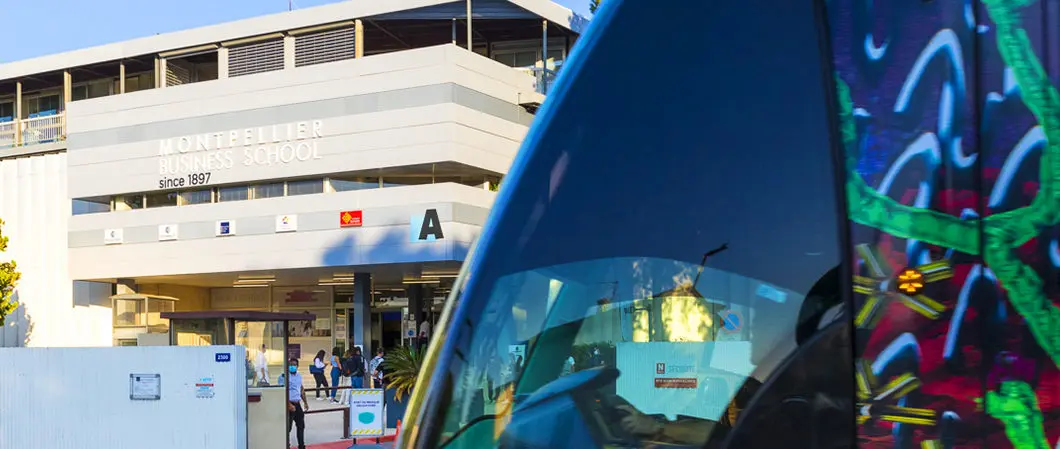
PhD graduate from Lyon 2 University, Dr. Oussama AMMAR comes from SKEMA where he has held several positions since 2011. He was most recently Director of Bachelor Programs on all of Skema’s international campuses after having been for 4 years Academic Dean and Campus Director in Raleigh (USA) and Global Scientific Director of Msc International Business.Previously, he held faculty management responsibilities as Associate Chair of the Strategy and Entrepreneurship department. He started his career as a Lecturer at EDHEC for 3 years, then assistant professor at ISG.
Associate Professor in Strategy, he stands for an international and diversified experience of more than 15 years in the Business Schools world and joins MBS as the new Director of MBS Programs.
“I am delighted to join MBS as Program Director to help develop and internationalize the programs. My international experience and the network that I have been able to develop over the years will allow me to consider growth levers to bring our programs to the forefront and give them more visibility on the national and international market. It is also a question of reinforcing the academic quality of our programs and broadening our circle of academic and corporate partnerships in order to attract quality candidates and diverse profiles that reflect the DNA of our school. “
The entire MBS community welcomes him and wishes him every success in his new position.

Incoming mobility of international students and researchers in the context of the health crisis
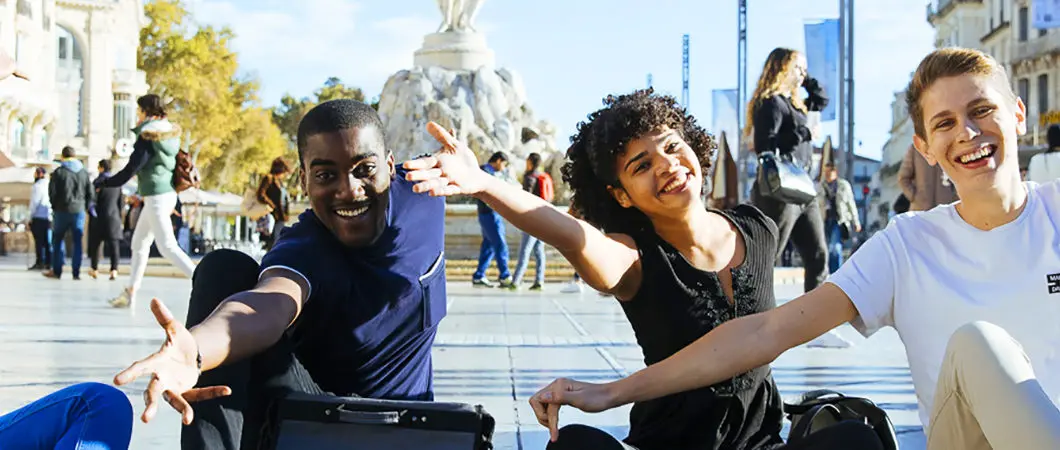
Our partner Campus France keeps you updated about the changes that can occur in the reglementations while traveling during the health crisis.
“Decree No. 2020-1310 of October 29, 2020 modified the categories of countries of origin. Only European Union Member States are now included in the list of countries allowing exemption from testing.
International students and researchers coming from outside the European Union must first be tested before their departure; otherwise, they can be tested upon arrival, where systematic testing will be offered. For four countries (United States, Panama, United Arab Emirates, Bahrain), pre-testing remains absolutely mandatory to come to France.
In spite of the changing health situation, students and researchers continue to benefit from an exemption and can continue to come to France while complying with health regulations. International students in France are accompanied and supported by the institutions and the CROUS. All information on measures related to containment in higher education can be found in the MESRI Frequently Asked Questions.“
MBS Alumni 2016, François and Boris, co-found Rocambole, the Netflix of reading
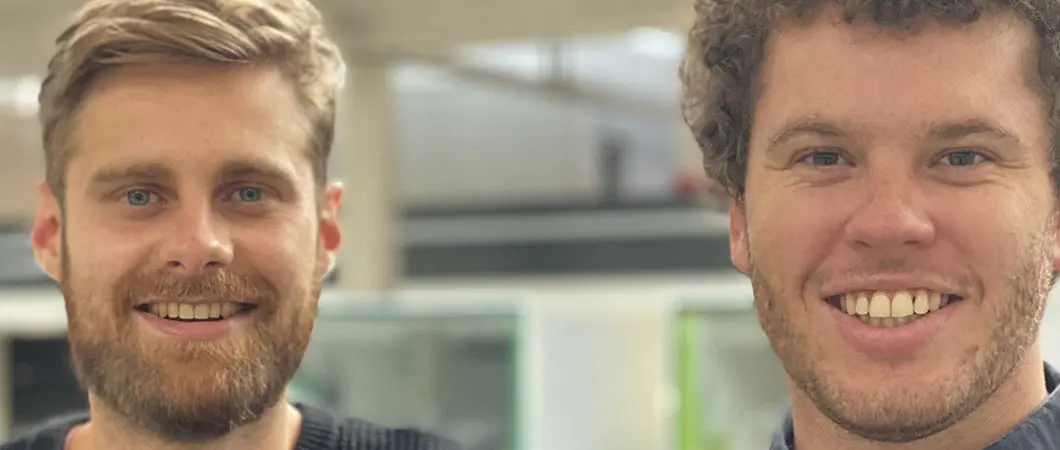
The Entrepreneurship Center nurtures the link between entrepreneurs, students and alumni at MBS to combat self-censorship and promote new business start-ups. The Incubator has been able to share its experience with François Delporte and Boris Duda, 2016 alumni of the Grande Ecole Program, co-founders of Rocambole with literature experts, the Netflix of reading.
From school benches to Station F: the adventure of liberation
Incubated within the famous Station F in Paris, the start-up Rocambole offers a catalog of about fifty series to be read in the form of 5-minute episodes. The young entrepreneurs were not at their entrepreneurial trial run. “After several years in big companies, as a web marketing manager, I wanted to leave my job, in which I felt I had too many limits in my ability to act. I then started as a freelancer and I decided to help entrepreneurs to develop human marketing. Then I met François during a start-up weekend during which we presented Rocambole to the Ministry of Culture. The adventure was launched,” Boris explained.
Addressing students who might be reluctant to try the entrepreneurial experience, Boris recommends the first experimental field of MBS associations. “Testing, failing, and trying again: this is the daily life of an entrepreneur and it is actually much easier to start an entrepreneurial venture once you have experienced these initial formative failures. Student associations are perfect for learning how to manage a project as a young start-up would. With François, we were very involved in the Larsen and Iris Live associations, and this allowed us to be confronted with the reality on the field for the first time”. The young entrepreneur adds: “It’s a great way to learn how to manage a project like a young start-up.
Offer stories embodying social, societal and environmental issues
The purpose of MBS, “train to transform”, meets the ambition of this new generation of students, who aim to have a positive impact on their ecosystem in order to respond to the main challenges of the contemporary world. François and Boris illustrate this desire to provoke change by offering a new system of reading consumption and opening up new avenues for reflection.
“We are driven by two objectives. The first is to restore reading time and space in our daily lives. That’s where we came up with the soap opera novel 2.0, which allows you to escape into a novel for a five-minute episode rather than spending it on the time-consuming applications on your smartphone. Our second ambition is to offer stories with contemporary subjects. Feminism, ecology, gender identity, migration, pandemics, these themes are the challenges of our society. By providing literary fictions, we can find the answers to build a more responsible world,” Boris concludes.
After a first successful fundraising campaign of €350,000, Rocambole now aims to develop its catalog and community. A great story to follow.
Pedagogical Innovations: How to Meet the Expectations of Generation Z Learners

Addressing an increasingly shortened attention span
The digital revolution and the ever-changing professions and skills have profoundly transformed the needs and behaviours of new learners. “The first issue facing the teacher is the duration of attention, which is becoming shorter and shorter for the learner. The average attention span is now estimated to be 12 minutes. We therefore need to develop a greater variety of teaching approaches and activities to stimulate curiosity at a more sustained pace“, explains Agnès Le Bellac, Innovation Manager at MBS.
In order to tackle attention disruptors (health, fatigue, smartphone notifications), Dr Julien Granata set up an original “educational hook” at the beginning of the stress management course. “The idea is to start with some physical exercise. All the learners stand up and we start the session by working on our breathing technique,” he explains. Dr. Jacqueline Boysselle develops neuroeducation and uses exercises that stimulate the five senses and emotions: “We work on the empathy of the learner during the customer segmentation course, and we invite them to create Pinterest photo albums that reflect the atmosphere and daily life of each identified customer. »
Being in contact with reality
There is another particularly developed requirement among this new generation of learners: to consume content that is as close as possible to the news, to their ambitions and to the realities on the ground. “We are working to integrate sustainable development and CSR issues into all our programs in order to meet the students’ ambition to play a role in the responsible transition of the world and companies,” explains Dr. Helen Etchanchu.
The reality on the ground also requires the integration of serious games. “Within the Finance specialization, we give students the opportunity to participate in a Bloomberg certification based on real market data. They are invited to take part in an Investment Challenge during which they are expected to develop a high-performance stock portfolio that evolves by following the real market price,” Dr. Thi Hong Van Hoang says.
The COVID crisis has sped up the development of pedagogical innovations
The widespread use of distance learning courses has led to the development of new tools to promote interaction with the class. MBS benefits from the expertise of the Learning Center, a dedicated service to support teachers in this pedagogical agility. “Our goal is to provide a better learning experience. For example, we are trying to contribute to the gamification of the exercises through the use of the Wooclap tool, which allows teachers to vote, interact and answer questions directly with their smartphone in real time,» explains Valérie Guesnier, Head of the Learning Center.
With distance learning, case studies are digitized, in a more entertaining way, in order to stimulate reflection, debate and challenge. This digitization also integrates board and business games. “We’re adapting and we’re going to provide students with a video game in which they have to discover each department of a company, assume their role and then recruit the best profiles among the characters,” confides Beverly Leligois.
The scripting of interventions and game experiences are thus multiplying within the teaching. “With the MBS Entrepreneurship Center, we have created a series of podcasts, which guide the learner through the world of entrepreneurship, help him find innovative ideas and concepts, and create a first bridge to the school’s incubator where he will be coached.” concludes Lina Manolova, Pedagogical Engineer.
Sustainable development is back at MBS: the 4 actions to remember for a responsible ecological transition
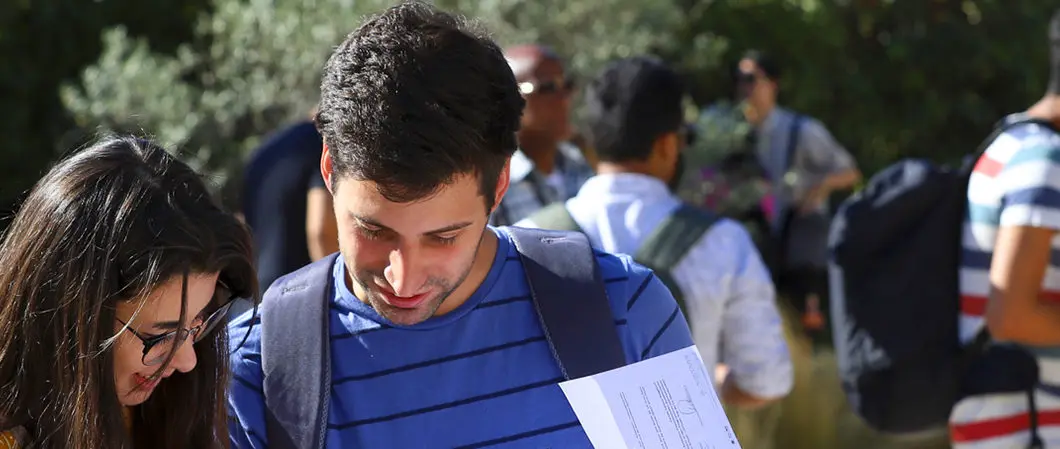
Montpellier Business School’s 2025 strategic plan reflects the school’s ambition to actively participate in building an open, responsible and sustainable economy and society. With events, a sustainability lab, welcome packs and the mobilization of all employees, the start of the 2020 academic year at MBS is a concrete expression of this ambition and places sustainable development at the heart of its actions.
MBS is co-organizing Les Rencontres du Développement Durable (Sustainable Development Meetings) on September 22nd to “transform capitalism”
The Sustainable Development Meetings are held from September 22 to 29 throughout France. This event is an opportunity for citizens to debate with all decision-makers and experts on ecological and solidarity transition.
Montpellier Business School kicks off these Meetings and focuses its day on the key topic of “Transforming Capitalism”. “The success of a responsible and sustainable transformation of the economy depends on democratic exchange. As an inclusive and committed school, MBS is very proud to co-organize this agora of change,” says Bruno Ducasse, Managing Director of MBS.
Inaugurated by the master class of Mr. Bruno Le Maire, Minister of Economy, Finance and Economic Recovery, the round tables of the day will be an opportunity to discuss the mobilization of the private sector and public authorities in favour of a sustainable ecological transition. To consult the full program of the day, please visit the RDD website. You can also register for the event here.
MBS creates the Sustainability Lab to strengthen the integration of sustainable development in training and research
One of the objectives of MBS training is to make students become aware of the economic, social, societal and environmental impact of their individual and collective choices. Today, nearly 25% of Montpellier Business School’s research publications include CSR-related issues and MBS is also one of the Grandes Ecoles that offers the most teaching hours on this topic.
“We created the Sustainability Lab to continue and expand this collaborative approach and shape programs around the challenges of the ecological transition,” explains Dr Helen Etchanchu, Research Professor at Montpellier Business School and Coordinator of the Sustainability Lab.
As part of the development of pedagogy and research around sustainable development, MBS also aims to put in place concrete and rapid actions on campus in anticipation of the new eco-campus planned for 2023.
The MBS campus is committed to reduce its carbon footprint
In 2020, MBS launched a Company Travel Plan (Plan de Déplacement Entreprise – PDE) for its employees. “This mapping will help to optimise transport for each employee and to promote the most sustainable means of transport,” explains Benjamin Ferran, Head of Diversity and CSR. In a second step, service providers, students and visitors will also be surveyed in order to multiply transport synergies.
In addition, MBS wants to provide its community with new facilities to encourage the use of more environmentally friendly means of transport. “The purchase of electric test bicycles and the installation of new tracks for scooters and bicycles are planned for this new school year. We are also considering the installation of recharging stations for electric cars and electric scooters,” Katrin Jacob, Sustainable Development and Health Project Manager, adds.
An MBS forest to celebrate the return to school of students and collaborators
Finally, MBS pursues its “no goodies” policy and welcomes students and employees with a new initiative by joining forces with Reforest’Action. “All students and employees are invited to virtually plant a tree, which will actually be installed in the Haut Languedoc regional natural park. This project is part of a reforestation of 17 hectares ravaged by bark beetle attacks and gusts of wind.” explains Lidia Moussa, project manager.
In total, nearly 4,000 trees will be planted to form the first MBS forest.
